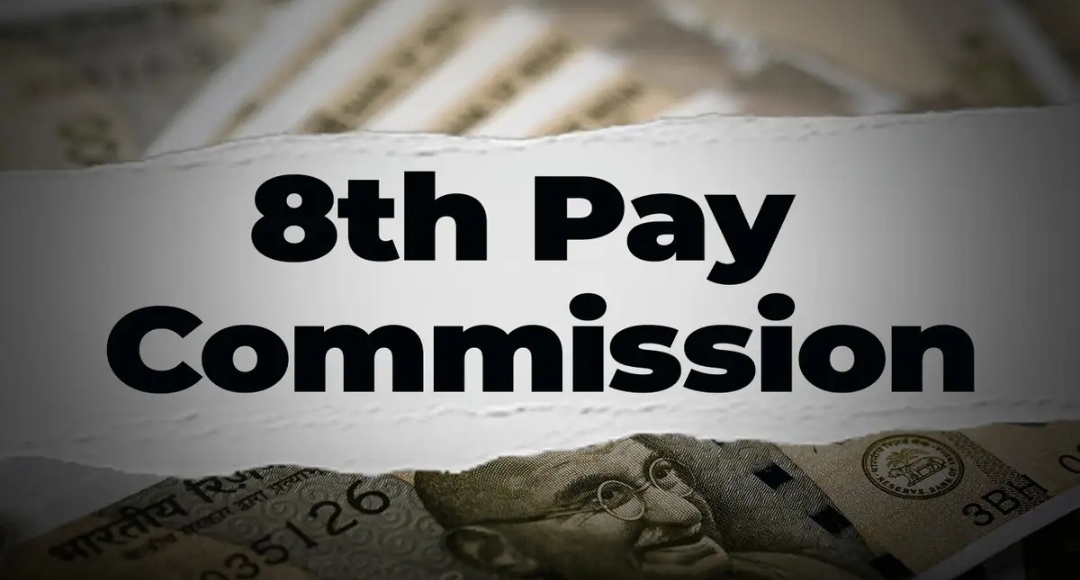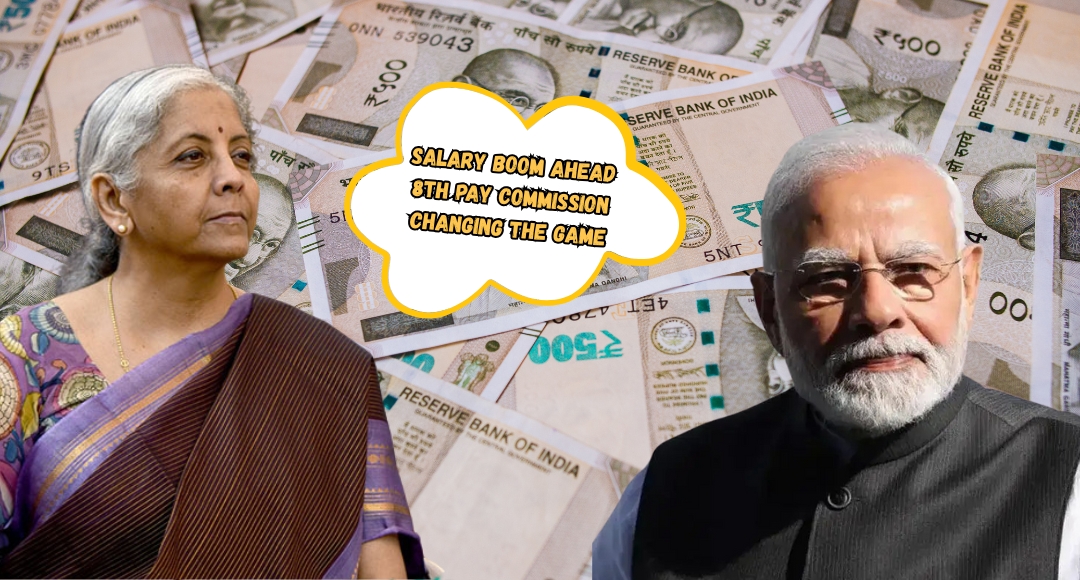For over one crore government employees and pensioners in India, the excitement is real, and the wait is almost over. With the 7th Pay Commission having completed a full decade since its implementation on January 1, 2016, discussions and hopes around the 8th Pay Commission are gaining serious momentum. If everything goes as expected, the new commission could be rolled out from January 1, 2026, and this time, two major changes are likely to completely transform the salary structure.
Why the 8th Pay Commission Matters More Than Ever

The rising cost of living, inflation, and growing financial responsibilities have made it crucial for employees to see a reasonable salary revision. The 8th Pay Commission promises not just an update but a complete salary overhaul that could improve the quality of life for millions of central government workers and retirees.
Fitment Factor Likely to Be Revised to 2.86
One of the biggest updates expected in the 8th Pay Commission is the increase in the fitment factor, a multiplier used to calculate revised salaries. In the 7th Pay Commission, this was 2.57, which raised the minimum basic salary from ₹7,000 to ₹18,000. Now, with a projected fitment factor of 2.86, the minimum basic salary could increase to ₹51,480, making a noticeable difference in employees’ monthly earnings.
DA Merger Could Boost Pay Even Further
The Dearness Allowance (DA) plays a crucial role in protecting salaries from the effects of inflation. Presently, DA stands around 55%. If the government decides to merge DA with the basic salary before the 8th Pay Commission rolls out, just like it did in the 7th CPC when DA was 125%, it could significantly increase the base salary, changing how overall compensation is calculated.
What About Pensioners? DR to See Changes, Too
It’s not just active employees who benefit; pensioners are also likely to see changes through adjustments in Dearness Relief (DR). The government modifies DR every six months to keep pace with inflation, ensuring that retirees aren’t left behind in the economic equation.
A Brand-New Salary Structure Is on the Horizon

The upcoming changes are expected to completely revamp the existing salary structure. With the new fitment factor and the likely DA merger, the way salaries are calculated will be reshaped. For employees and pensioners alike, this could mean better financial stability and a stronger foundation to meet daily expenses.
Official Notification Still Awaited
As of now, there has been no official announcement from the Government of India beyond the expected timeline. However, with the 10-year cycle nearing completion, expectations are high, and preparations have likely begun behind the scenes.
Disclaimer: This article is based on publicly available news updates and expert projections. No official confirmation has been issued by the Government of India regarding the implementation or structure of the 8th Pay Commission. Please refer to government notifications for accurate and confirmed details.
Also Read
7th Pay Commission: Anticipation Builds as DA Hike Looms for Central Employees
Precious Metals Boom: Gold and Silver Prices Hit Fresh Highs
8th Pay Commission: Big Salary Hike See All Details
























